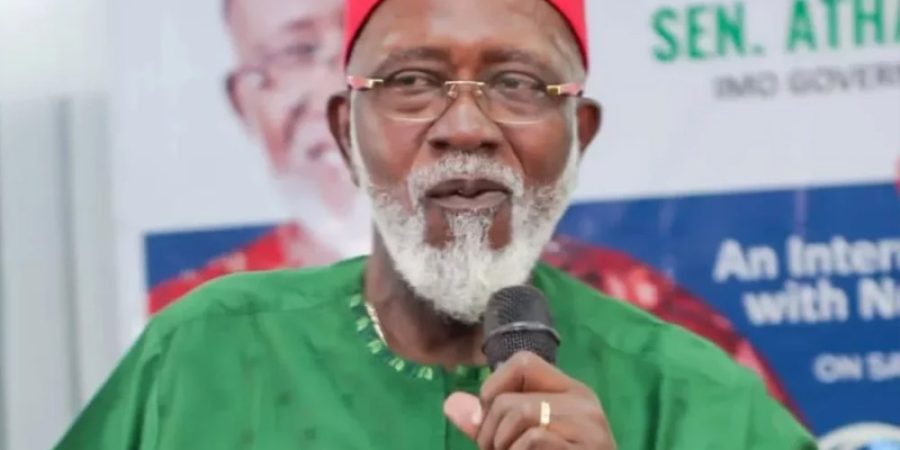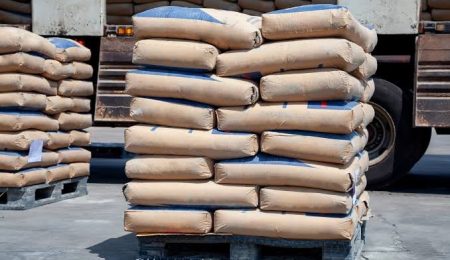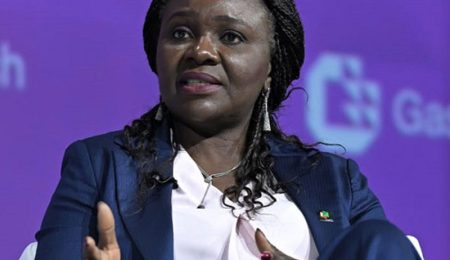Former Senator and Labour Party’s governorship candidate in the 2023 Imo State election, Athan Nneji Achonu, on Monday disclosed that the National Assembly was already working on a bill aimed at legalising cannabis for medicinal and economic purposes.
The LP chief, therefore, urged the federal government to embrace the move to legalise and regulate the cultivation and processing of crops for both medicinal and industrial purposes.
He warned that Nigeria was “sleeping on a multi-trillion-naira opportunity,” while other countries race ahead.
Achonu, who stated this while addressing journalists in Abuja, described cannabis, often demonised in Nigeria, as “green gold.”
The Labour Party chieftain said, “I sponsored a similar bill when I was in the Senate, but it was not passed because Nigerians chose to demonise its usage.
“In my recent interactions with some members of the current National Assembly, I discovered that there is a bill in the Senate seeking legislative backing for the usage of Cannabis for both medicinal and economic purposes, with strict regulations to avoid abuse.”
He said legalising it could drive economic diversification, create jobs, attract foreign investments, and strengthen medical research if brought under strict regulatory oversight.
He said, “The global legal cannabis market is projected to exceed $100 billion before the end of this decade.
“The United States, Canada, Germany, Israel, and even African neighbours like Lesotho and Zimbabwe are already reaping huge benefits.
“Nigeria has the right climate, fertile soil, and manpower to dominate this industry. Instead, we are watching others build wealth while we cling to outdated prohibitions. The time to act is now. Let us legalise, industrialise, and monetise.”
He noted that apart from boosting government revenues through taxation and exports, a regulated cannabis industry would provide alternative treatments for Nigerians suffering from chronic pain, epilepsy, and cancer.
“Our farmers and entrepreneurs are ready. What we need is the political courage to create the right legal framework,” he added.
Beyond the cannabis debate, the former lawmaker raised concerns about the poor utilisation of resources accruing to states and local governments from the Federation Account, particularly the proceeds of fuel subsidy removal.
He called on civil society organisations, professional groups, and ordinary citizens to closely monitor the flow of allocations, insisting that grassroots accountability is vital for development.
Achonu said, “The federal government has done its part by disbursing 26.72 per cent to states and 20.60 per cent to local governments.
“Sadly, most governors have shown no convincing evidence of how these funds are improving human development indices,” Achonu lamented.
He warned that constitutional immunity shields governors from prosecution for mismanagement, making it imperative that a greater percentage of allocations be channelled to local governments, which can be held legally accountable.
He said, “We must hold local government chairmen to account. If necessary, take them to court to explain how they spent the money.
“That is the only way this historic autonomy granted by the Supreme Court can be meaningful,” he said.
Achonu further called for constitutional reforms to empower the Independent National Electoral Commission (INEC) to conduct local government elections.
He stressed that state electoral commissions had become “mere instruments of manipulation.”
According to him, autonomy without credible elections is hollow.
“INEC must be mandated to conduct these polls so that local councils can truly reflect the will of the people.”
While identifying gaps in governance, Achonu commended President Bola Tinubu’s administration for some bold economic measures, particularly the removal of fuel subsidy, the push for tax reforms, and the Senate’s insistence on local processing of raw materials before export.
He said, “These reforms, if properly executed, will lay the foundation for long-term economic growth.
“The challenge is not in the policies but in their implementation. Nigerians must stay vigilant to ensure the proceeds are used to better lives, not squandered,” he added.
The former senator also renewed calls for the constitutionalisation of zoning, warning that Nigeria’s fragile unity will remain threatened unless inclusivity is guaranteed in leadership rotation.
He proposed that the presidency should rotate among all six geopolitical zones, starting with the South-East and North-East, which have yet to produce a president since 1999.
On diaspora voting, Achonu described it as, “long overdue,” noting that Nigerians abroad remitted over $20 billion in 2024, far exceeding foreign direct investment.
“These are patriotic citizens who understand the value of good governance. With modern technology, there is no excuse for excluding them from our electoral process,” he declared.
In his wide-ranging address, Achonu also backed the federal government’s plan to expand local arms production, stressing that Nigeria’s security challenges demand home-grown solutions.
He recalled his personal investment in research collaboration between Nigerian institutions and US firms over a decade ago, saying such partnerships should now be scaled up to reduce dependence on foreign suppliers.
Achonu emphasised that his interventions were not partisan but patriotic, aimed at stimulating dialogue on Nigeria’s political and economic future.
“I speak not just as a Labour Party man but as a citizen who loves this country deeply.
“If we confront these anomalies with courage, whether through empowering local governments, legalising cannabis, or embracing inclusive reforms, we can set Nigeria on a path of stability and prosperity.”
Sunday Aborisade
Follow us on:



